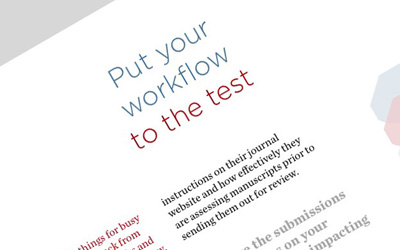
As a law professor Angela Kupenda isn’t just teaching her students about legal scholarship, she is helping them become legal scholars. Kupenda, who teaches constitutional law; civil rights; and race, gender, class and the law at Mississippi College School of Law, has been co-authoring articles with students and helping them to compose and publish their own since she started her professorial career.
While publishing with students is not the norm in legal scholarship, Kupenda felt it right to break the mold in order to give her students the opportunity to immerse themselves in meaningful research projects and develop their individual writing voices. Over the years she said she’s been able to help many students write and publish articles on topics they are passionate about, and in the process she has gained valuable insights to bring to her own work from their unique life experiences and perspectives. In the interview below Kupenda discusses how she got started working with students on legal articles, the outcomes she’s had, and her goals for the future.
Q&A with Angela Kupenda
What caused you to think about the importance of helping your students develop scholarly influence while in school?
AK: The idea developed over time. When I first started teaching in legal education I was familiar with other disciplines where professors on a routine basis wrote articles and papers with their students and also gave them co-authorship credit for doing so. I assumed that was the case in all of the disciplines - and I assumed wrongly. That is not the case in legal education, as my colleagues explained to me. It was kind of hard for them to understand why I would share authorship credit, but even at that point I said that if I benefit from my students’ insights in any way, they also should receive recognition for that.
As time went on though, and maybe as I got older - or maybe my students seemed younger - it was more difficult to write a piece with one voice because the generational experiences were so different. I started encouraging my students to find their voice and write on their own. The more they did that, the more I understood how much we need all of these scholarly voices to be heard. It wasn’t intentional that I would benefit from them, but along the way I found that I learned so much - both in terms of my perspective of what it means to be a professor and citizen. I also benefited in the sense of helping them cultivate articles on topics they were extremely passionate about.
What was it like for you initially trying to co-author papers with a student? What were the main insights you were gaining and the challenges you had to overcome?
AK: In addition to the institutional challenge, it can be really difficult sometimes to work on one’s own research and at the same time to nurture research and writing in another person. I had my own challenge in terms of “how do I find a balance? How can I make the time to read a student’s paper, give them insights, channel arguments, challenge ideas, and at the same time carve out the time for my own scholarly agenda?” Another obstacle just had to do with what voices have value. We seem to think that the voices of judges, esteemed professors, and lawyers have authority - the people in our communities feel that way too. But we overlook the voices of individuals who are silenced because of their race, gender, or status - or in our system I would say our students. Those students have voices with power and authority too if we encourage them to use them.
So one thing I also had to get over was that I am not the expert on all things. I had to allow myself to be able to learn from my students and to challenge my own perceptions to give them the freedom to have a viewpoint different from mine, and to help them support that viewpoint even if it’s not my own.
Can you share some examples of projects that you’ve done with students that have been particularly influential for both of you?
AK: I want to start by saying that my working with students on their legal writing developed in part because of a project I worked on with a student of mine named Crystal who is now a staff attorney here at the law school and the director of our adoption project. When she was a student, she wanted to establish a law journal for student scholarship, one that dealt with issues of social justice and equality. In the process of doing this project, I served as her faculty advisor. She went through all the steps the faculty and administration wanted her to do - this was several years ago - but the faculty still did not vote approval for the law journal. One of the concerns some faculty had was “will we find writing by students and others on issues of equality that is great enough to be published?”
Hearing that concern I guess I started working on articles with students in part out of an annoyance. I was annoyed at that comment, and I said “yes, our students can write about these issues, and they can make a difference.” It started out of the work of Crystal - that’s why some of the students call the work I do with students “the Underground Law Review.” Even though we didn’t get that other journal set up at this school, I have students who have been published in various other social justice journals, and now we have students who are being published in a law journal here based on their writing dealing with the Constitution and inequality.
I learned something practical from one of my students Justin, who’s now a public defender in Ohio. He was writing a paper soon after President Obama was elected. He wanted to talk about how much fear seems to consume and affect us, and how alleged fear of President Obama was actually working to his disadvantage. I found his topic provocative, but I also found his work ethic provocative. I had to make him sign a contract a week before the paper was due that he would not do any more research. He was enjoying the process so much. When a journal published his paper, he told me he got a big kick out of it - they asked him to do more research on points where I asked him to cease the research. This may not be positive to say, but sometimes as professors we may grow tired of reading, we may get tired of researching points. Maybe that’s why we delegate some of that work to our students. But the joy he had at reading another case, reading another position - that really challenged me to have a new energy and new respect for my work.
Then I had this student who was having difficulty writing. She was talking about how it’s almost like driving while black - she felt so suspect as a black student trying to write. I said “there you go, there’s your title right there. I want you to write about writing while black and what that means. What are the obstacles and how can you get around them?” As she wrote about the obstacles, she was able to get over the anxiety she had and complete a very good paper that also ultimately was published.
What are your thoughts on current expectations for legal scholarship? How do you think the system could be improved?
AK: I definitely think the system can be improved, but I think it would be quite difficult. A theme that I believe is present is this idea of ownership of ideas. I’m not saying that it’s completely a bad thing, but the idea that the professor should own his or her writing seems to be in opposition to shared ownership. We see some change happening in the classroom in a very good way with flipped classroom teaching, where we’re sharing the ownership of leading the classroom with students. I think we should also think about following the models of some other disciplines with having more shared scholarship with our students. We stand to learn so much, especially the faculty who have been teaching for awhile. Every generation brings something new, whether it’s age or whether it’s just based on one’s exposure to the law. I definitely think we should reconsider this idea that scholarship is not scholarship unless it has a solo name. There should be more joint and collaborative writing, projects, and seminars.
The other thing is that with students’ help we can produce more worthwhile scholarship. I used to keep a shelf of ideas I had, which I never could have gotten through on my own. I still have the shelf, but in recent years I have passed those ideas to students. When they’re trying to come up with something to write about, I say “well I have this idea on my shelf, I’ll give you this idea, you can write on it, but I want you to do a really great job because I would like to see this published.”
To have joint writing projects work, what do you think is necessary for the professor and the students to bring to the project individually?
AK: I think the professor definitely has to bring an openness and a respect for the student. We often talk about students respecting the professor - and that’s important too. But to encourage the scholarship of a student one must have deep respect for the humanity and intelligence of that student and a belief that they can write and have great ideas. So the professor also has to bring an openness to being critical of her or his own perspective. You have to know that your way is not the only way. In the papers I often tell students “I may push you on a point, but if you think that my pushing you on this point is wrong, you must tell me that you don’t think it’s relevant, you don’t think that it fits. But if you’re just avoiding addressing the issue, you’re going to have to address it, even if in the footnote, and that will make your writing richer and more complete.”
For my students and the students in the “Underground Law Review” as they call it - which also includes some students from the regular law review - I don’t require that students have a certain GPA, I don’t require that they be on law review. What I tell them is “you must be honest with me. If you give your word that you’ll have something done, it either should be done or you should own the fact that you didn’t do it.” So I expect them to be honest with me, to be respectful, to be hard working, and to just want to feel pride in producing an article or document that may in fact change minds or change lives. That type of drive is what I’m looking for, and that drive may match up with someone who’s on law review in the top ten, but it is not exclusive to that group.
Do you think this is presently something that can help students emotionally, given the current turbulent political environment and concerns of social justice issues?
AK: I definitely think so. Right now I’ve taken a lot of my projects to the seminar context of maybe ten or twelve students. Not a seminar in the sense that I lead the class, but students are writing on related topics and we share the critiques and ideas in the classroom, and students help each other in terms of developing their work. I’m planning a seminar for the fall called “Class and the Constitution.” We’re going to look at economic class, social class - which I think is different - and racial class divisions. I’m looking at some books that deal with poverty in the white community, the black middle class, and lots of other groups. I’ve discussed this with a couple of students and they think it could be really helpful because obviously we’re missing each other on the conversation about class and economic and joint collaborative efforts in order to have a better country.
The sneaky part of this is that I think it would benefit me. I grew up in the deep south. For most of the time I was raised by my mother, a single parent, and money was tight. It’s hard for me to separate the issues of race and economic class because to me the race encompasses it. But one of my students who is a white male from Ohio has been trying to work with me over the years to educate me more about working class whites just so I can be better informed as a scholar and teacher. I think as faculty we have to come to a point that we do not know it all. We certainly don’t know it all about race, class, or gender. We know our experience, we know what we’ve read and how we explain that to ourselves. But we don’t know the experiences of other people. I think that more seminars on these topics will help us find the language that we need to communicate with each other, and I think students can help us do that and help us be better professors and better scholars in the process.







